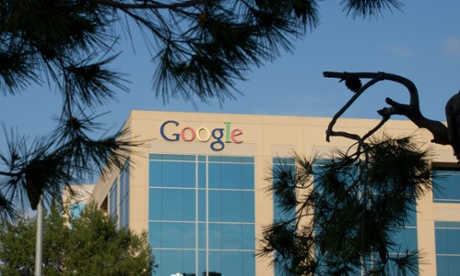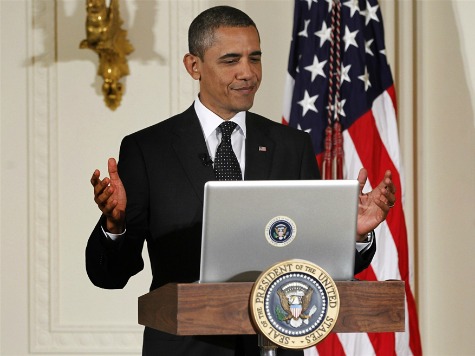But some have already questioned the results The long-held notion that Facebook’s algorithm leads to the creation of “echo chambers” among users isn’t exactly true, according to a report published Thursday in the journal Science. After studying the accounts of 10 million users, data scientists at Facebook found that liberals and conservatives are regularly exposed to at least some “crosscutting” political news, meaning stories that don’t conform to their pre-existing biases. The algorithm for Facebook’s News Feed leads conservatives to see 5% less liberal content than their friends share and…
Read MoreAuthor: Staff Writer
Announcement of keynote speakers for E-Learning 2015 Conference includes Sophia Bekele
CIO East Africa, one of the media sponsors for the event, reported on the announcement from organizers that the keynote speakers at this international conference of E-Learning Africa 2015. The event the will take place from 20 – 22 May in Addis Ababa, Ethiopia, and the keynote speakers include Ms. Sophia Bekele, Founder/CEO of DotConnectAfrica Group & CBS International USA, Founder of Yes2dotAfrica Campaign; Ethiopia/USA, Mr. Shai Reshef, University of the People, USA; and Mark Surman of the Mozilla Foundation, USA. CIO Reports: One of the interesting scenes in this event…
Read MoreWebsite not mobile friendly? Google is making major Algorithmic change to rank you lower
On Tuesday, April 21, Google is making a major update to its mobile search algorithm that will change the order in which websites are ranked when users search for something from their phone or tablet, making it mobile friendly. The algorithm will start favoring mobile-friendly websites (ones with large text, easy-to-click links, and that resize to fit whatever screen they’re viewed on) and ranking them higher in search. Websites that aren’t mobile-friendly will get demoted. About 60% of online traffic now comes from mobile and Google wants users to have a good…
Read MoreWSJ: Google Hit With Antitrust Lawsuit In Europe
“European Union regulators formally accused Google Inc. of violating the bloc’s antitrust laws by abusing its dominance of online search, escalating a long-running case that had stalled for years despite three separate attempts at a settlement. Wednesday’s move is the first time that any regulator has filed formal antitrust charges against the California search giant, putting the EU in the vanguard of a global debate over the regulation of giant Internet platforms.” Adapted from WSJ
Read MoreWhy investors should be concerned about cybersecurity breaches
Major security breaches continue to hit headlines, as businesses are forced to shift from focusing on the imminent nature of threats to calculating their potential financial impact. Companies are investing billions of dollars in cybersecurity, but the average return on spending for security technology is only 14%. Every year the cost of a data breach continues to rise. In spite of this, investors and shareholders don’t react strongly to news of a breach. Target’s stock fell 11% after it revealed it was the victim of one of the largest breaches ever to…
Read MoreRussians Implicated In White House Hack After Obama Makes Cybersecurity Executive Order
The same Russian hackers who breached the State Department system for months also gained access to an unclassifed White House computer system, according to a report from CNN. Although the system did not contain classified information, the Russians reportedly had access to the president’s private schedule. The connected cyberattack on the State Department in recent months has been characterized as the “worst ever” hack on a federal agency. The White House is no stranger to attacks from foreign spies. The Chinese have been implicated in several high profile attacks of White House unclassified systems and employee emails. News…
Read MoreEU hopes to abolish Internet geoblocking as it stands in the way of a modern digital market
The European Commission has said it is resolved to do away with the common practice of the user IP-based blocking of some digital content on the Internet. It said geoblocking stood in the way of a modern digital market. The EU executive announced Wednesday it had reached a decision in principle to tear down national Internet usage barriers by scrapping the widespread practice of what’s become known as geoblocking. It’s a method of preventing users from accessing certain websites, videos, music and other content based on their location and has…
Read MoreUnderstanding the Impact of Internet of Things
While Apple and Samsung have had the benefit of being the large, dominant players in the mobile smart phone space, there are likely to be many successful entrepreneurial companies with many different Internet of Things products that help drive the next wave of innovation. It’s amazing when you stop and think about it. Your mobile phone has instant access to the sum total of human knowledge … and yet something important is missing: Contextual Awareness. Through sensors both stationary and wearable, the Internet of Things (IoT) has the potential to change…
Read MoreCybercriminals Are Misappropriating Businesses’ Web Addresses
As a Result, Customers Can’t Find the Real Companies on the Web Cybercriminals targeting businesses are stealing more than customer passwords and credit-card numbers these days. Some are misappropriating the very Web addresses—or domain names—of the businesses themselves. When Pablo Palatnik of Miami glanced at a Google analytics report showing Web traffic on his office TV monitor one day last month, he was alarmed to discover that traffic to his business website, Shadesdaddy.com, had plunged 80% from its usual level of as many as 10,000 visitors a day. At first,…
Read MoreCIO: The Cybercrime Economy Personified
While the Center for Strategic & International Studies and McAfee estimated the annual cost to the global economy from cybercrime at $375 billion conservatively and $575 billion maximally as of June 2014, at least one expert stands by cost figures that are many times those numbers. “U.S. companies and the U.S. economy lose approximately $500 billion each year to theft of trade secrets and innovation. This includes all forms of economic espionage where cybercrime plays a major factor. When you factor the 10-year life of the investment in innovation, the…
Read More





